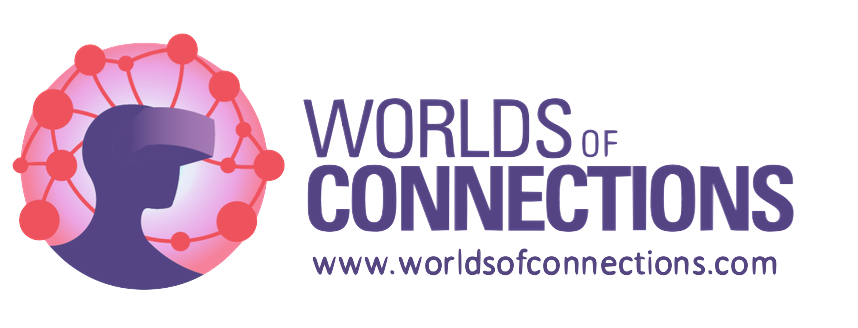
Worlds of Connections Newsletter
10 December 2018
Volume I, Issue 1
Letter from Dr. McQuillan
Hello, Worlds of Connections community,
Thanks to our project coordinator Grace Stallworth, we have our first project newsletter.
As many of you know, we were surprised that our initial submission was funded shortly after we submitted a revised version. The project officially started September 1, 2018, with budget reductions and a shorter timeline. We combined what we thought were the best elements of the two proposals and quickly got to work (see updates below).
The five biggest changes from the original proposal are: 1) Drs. Patricia Wonch Hill and Christine Cutucache are now co-investigators; 2) Dr. Michelle Phillips is now our external evaluator working closely with Dr. Amy Spiegel our internal evaluator; 3) We replaced the graduate seminar with a Network Science Institute that we will pilot July 15-19 2019 by invitation; 4) We will have two graduate students working in the LPS evaluation office next summer on data for evaluation; 5) We added several people to the advisory board.
We are keeping the Science Connector event, and Dr. Judy Diamond has already secured a new location (Nebraska Innovation Campus) and is collaborating with our partner Dr. James Blake of LPS to make a great day for our science teachers. As planned, we have college students in the Soc 198 Introduction to Social Networks class (Grecia Macias and Nestor Hernandez) working with Kim Gocchi Carrasco making activities with input on keeping them fun from undergraduate Shayla McNear.
It is thrilling to have such a great team with exciting partners working hard to make Worlds of Connections become a reality. Thank you!
Sincerely,
Julia McQuillan
Worlds of Connections Primary Investigator
Professor & Chair of Sociology, University of Nebraska
Project Updates
Meetings
We have been meeting with most project team members to get the basic plans for the first year in good shape. If you have yet to hear from us, please feel free to contact Grace Stallworth, project coordinator, at gstallworth2@unl.edu.
After-school Clubs
Our team worked quickly with the Lincoln Public Schools Community Learning Centers to determine which after school we would be working within the spring to pilot our club. After discussions with the leaders, Culler Middle School decided they would be our pilot site. We have planned over a dozen unique network science activities for youth, including an activity with a giant Jenga set. Our collaboration with NE STEM 4U, a student organization at the University of Nebraska-Omaha led by Dr. Christine Cutucache, is an incredible resource as we work together to develop NE STEM 4U in Lincoln. We will host our first clubs with Network Science activities starting in February 2019 in both cities.
Website
Colleen Syron and her student Emily Tran have created a project logo and are populating the project webpage as fast as we can get them content. We have our domain name – www.worldsofconnections.com – please let us know if you have suggestions for improving it. Our web page will serve as a hub for all things Worlds of Connections – information about activities, events, students, teachers, and team members. If you have yet to send a STEM-centered biography and photograph to Grace Stallworth, please send her an email.
Project Accomplishments
Upcoming Goals
We have secured a school to host our after-school club at in the spring – Culler Middle School here in Lincoln. We’ve also been able to work collaboratively between UNL, UNO, LPS & OPS; all are instrumental in our successes.
– Test our network science activities to ensure their quality and secure enjoyment for students
– Continue planning upcoming events for schools’ students, staff, and others.
Specific Aims
While our overall goal is to increase opportunities for underrepresented minority youth in high poverty schools to engage with Network Science and ultimately pave new paths towards health careers, this project also has specific aims, or goals, that we are planning to reach before the project’s end date. You may review them below.
Specific Aim #1:
Improve understanding of how informal STEM experiences with network science in health research can increase STEM identities, STEM possible selves, and STEM career aspirations among youth from groups historically underrepresented in STEM disciplines at the center of health science research.
Specific Aim #2:
Create emerging media resources (e.g., augmented reality) to stimulate broad interest in and understanding of the role of network science in biomedical and public health research.
Upcoming Dates
April 2019 – NIH Sci Ed Conference (SEPA Conference)
July 2019 – Network Science Institute for Teachers
